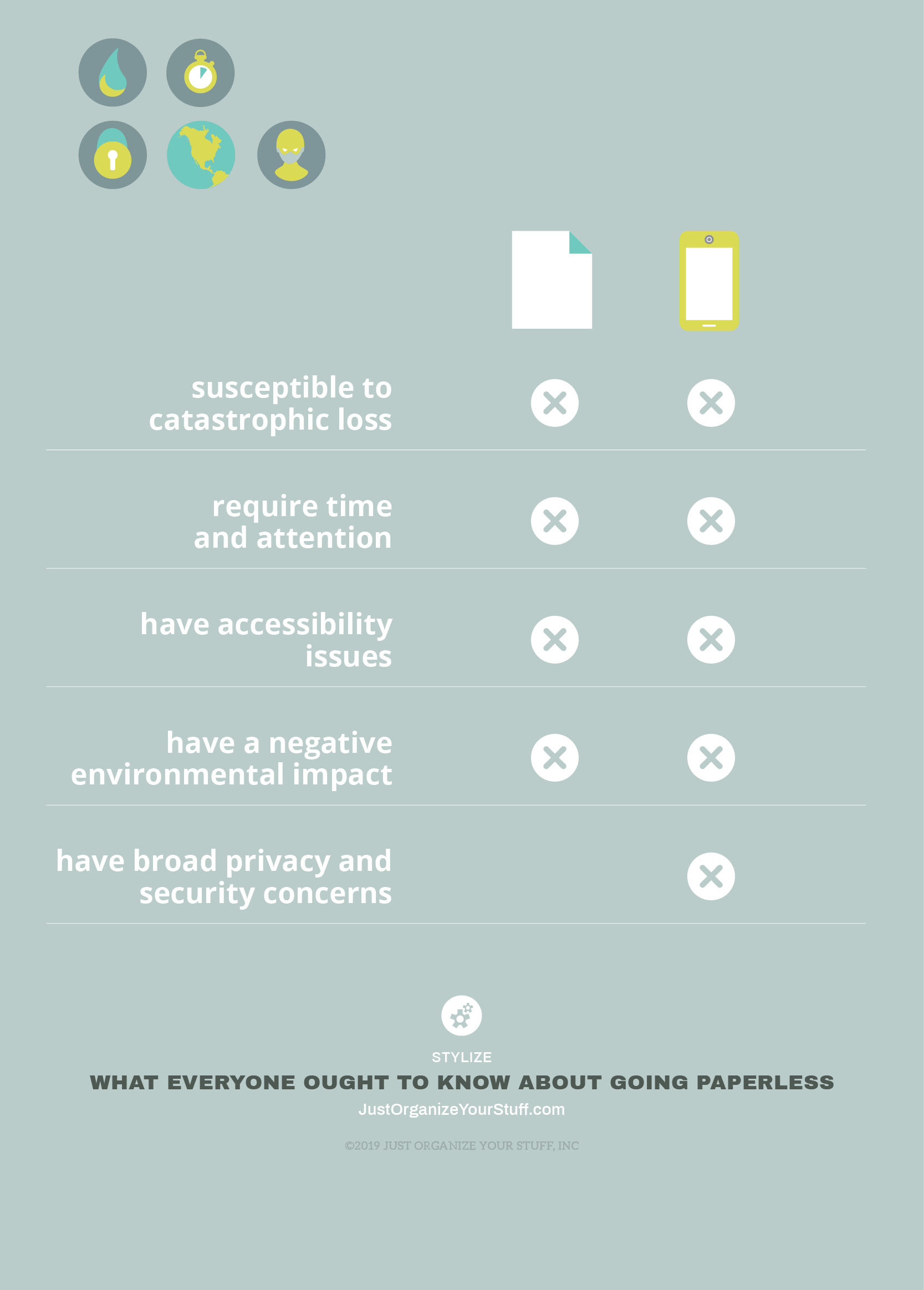
Going paperless does have its perks. But before you get all gung ho, there are many factors to consider. This is not black and white. There are many shades of grey.
Pulp vs. Pixel Paper Keeping - The Simple Facts
- Both hardcopy and digital records are susceptible to catastrophic loss via natural disaster, fire or theft.
- Take steps to protect your important documents and vital records. And, have a backup plan for both your digital and traditional files.
- Both hardcopy and digital record keeping require your time and attention.
- Digital record keeping is as time-consuming, if not more so than the traditional methods. Technology doesn’t cure procrastination or fix a weak system.
- Emails, electronic files, and online to-do lists are easy to scroll through, easy to be distracted from and even easier to get lost in the digital deluge.
- Proper file naming, tagging, and general maintenance is absolutely required in both filing methods.
- Digital record keeping requires more focused attention. Please do not take technology for granted.
- We expect our digital records to remain accessible for years. Realistically technology has many hazards that do not exist in a good old-fashion filing system.
- Corrupt digital media and technical issues are widespread issues. Relying on hardware, software, online applications, and third-party practices create conditions outside of your control. Lost records due to company closures or poor management are not uncommon. Companies merge, are sold off or permanently close their doors. When this happens, your personal records may be compromised or lost forever.
- There are computer start-up issues, crashes, and computer viruses. As well as, illegibility due to the depreciation of technology that will also provide challenges not found in a traditional filing method. Have a backup and backup your backup.
- Both hardcopy and digital records have accessibility issues.
- Obviously, with pulp paper you need to be in a specific location to access it. That being said, Internet access is never guaranteed. Aside from the downtime that is likely to follow a hard drive crash or a significant disaster, odd outages do occur.
- For example, after being unable to access the web through my computer browser, I have gone to my iPad. When that didn’t work, I would pick up my iPhone. There have been occasions where I have had no access for nearly 5 hours. What was so unusual about these events; each one of my devices uses a different Internet provider. Even odder was the lack of any significant weather.
- You are never guaranteed access when you might need it most.
- Both hardcopy and digital records have an environmental impact.
- Don’t be fooled into thinking that you’re saving the earth by going paperless. The natural resources required to maintain digital files are very demanding on our environment.
- Pulp papers are easier to secure.
- The only way pulp papers can be compromised is if someone actually has physical access to them. The same cannot be said for pixel papers, specifically the records stored in the cloud.
It takes time and effort to set up a dependable home filing system. So keep an open mind. Going paperless is not a panacea. All tools need dedication to push their potential.